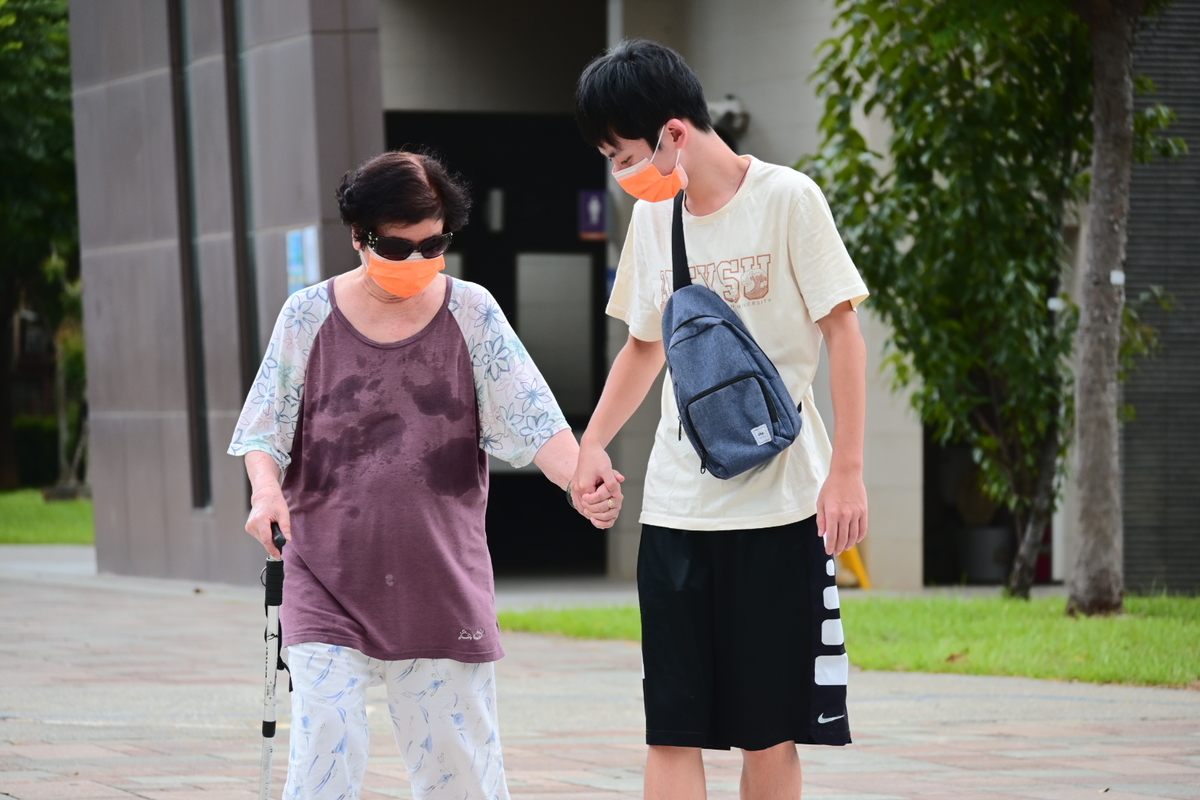NSYSU launched the Self-Directed Service-Learning Project course in the summer for the students to study in their own homes and neighborhoods and teach the elderly to send text messages for contact tracing, register for doctor appointments online, verify fake news, and shop online. In this way, the students contributed to social advancement and helped elders’ take care of their health, as well as to making epidemic prevention measures effective.
The instructor of the Self-Directed Service-Learning Project course, Professor Wen-Hui Anna Tang of the Center for General Education said that the course let the university students proficient in digital technologies teach the elderly back at home or in the neighborhood to use digital tools. Before the students got down to work, they listened to experience-sharing in a weekly online conference to acquire necessary skills. Through the course, besides reducing the digital divide among generations, the students could also learn communication skills with the elderly and further understand their needs. She believes that the service learning course combines the University’s social responsibility, as the students can use their technological literacy to make a concrete contribution.
Some students taught the elderly how to verify fake news, a student taught the grandfather how to change news channels on his tablet, and another one introduced an elderly neighbor to a sports application for him to work out together with his family. When the students just started to interact with elders through service learning, they often encountered problems because of the lack of proficiency in Taiwanese Hokkien. In a discussion, the students agreed that communication was the starting point to first clarify the elders’ needs. When interacting with the elders and listening to their stories, the students could understand them better and experience the problems they encounter during the pandemic and difficulties using digital technologies. Having established a positive relation, the students could identify elders’ needs and find out how to address them. The students recalled that they had to listen carefully to elders’ needs and take a different standpoint for their service to be effective.
A student of the course, a sophomore of the Department of Finance Li-Yun Hung said that her grandfather often goes out to fish and needs to check the weather, so she taught him to check the weather forecast. She discovered that it’s not that the elderly are not interested in digital tools, but rather, they are worried about being unable to learn and about troubling their children. However, despite their curiosity, they get started with smartphones rather late because of the generational gap in the digital divide. Through this course, she appreciated more the time spent interacting with the elderly.
Besides helping family members and neighbors, some students of the course worked as volunteer cooks to help the Huashan Social Welfare Foundation provide meals for the elderly who are sick and live alone. Chian-Chian Ho, a second-year student in the Department of Political Economy at NSYSU, reflected on her impatience when she first started teaching seniors, and how she adjusted her approach when participating in the service course. She tried to understand elders’ perspective, the difficulties they encounter, understand their thoughts and adjust her way of communicating. She sees effective communication and empathy as her greatest achievements during the course, as well as acquiring a different life experience.





